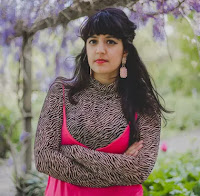Laila Woozeer is a British author, performer, musician and activist; she is the author of Not Quite White
The flawed vocabulary to describe mixedness is damaging. We are trying to understand each other through a warped lens
“Biracial” didn’t work either. Bi means two: bicycle; biannual; bisect – and with my parents’ lives each encompassing more than one single strand, I was more than two. To me, biracial could fit with people whose parents were of two separate, clearly defined cultural backgrounds, “half this and half that”. But I’d never been half this and half that.
“Multiracial” sounded too clinical, developed in a petri dish; its relative, “polyracial”, was less clinical but somehow mythical, Grecian in scope, an almighty deity with rippling skin, changing colour in the wind. “Dual heritage” was plain embarrassing, suggesting the existence of a “single heritage” majority who had sprung forth through cloning or asexual plant reproduction.
I could just tell people I was Welsh-French-Scottish-American-Indian-Mauritian, but can you imagine giving that as an answer to the ubiquitous “Where are you from?”. I could practically hear the follow-up before the words even left my mouth: “Wow, that’s an interesting mix!” – which made me want to climb out the window.
Our missing vocabulary to describe mixedness is damaging. Put a tree or a fish or a crescent moon in front of pretty much anyone from anywhere, and they’ll have a word for it in their language. The same can’t be said for the terms we use when discussing race, because outside our language, they are meaningless terms connecting only to theories. Our existing vocabulary is actively violent. Terms, like Bame (Black, Asian and minority ethnic), which is being retired, and PoC (people of colour) are framed in a “white” or “not-white” binary – emphasising a white majority and defaulting all other groups to “minority”. They only make sense if you understand and accept whiteness as the default and position anyone outside this as one homogeneous group.
Even the word “race” itself is sometimes interchangeable with “ethnicity” or “nationality”. And crucially, in some languages, none of these terms exist. Because race is a concept. We made it up. Learning how few of these terms exist outside English really underlines how futile they are, and how intangible the whole idea of race is.
But that isn’t to say the effects aren’t real, including with language: within English the way we talk about race is so limited, half-baked and tethered to oppression that it is another curse of whiteness which people of colour have to navigate. We can’t even articulate who we are, condemned to lengthy discourse just to identify ourselves. On every conceivable level, we lack acknowledgment and space.
Many mixed people don’t like the term “mixed race”: it conjures racist ideologies of “race mixing” and the “one-drop rule”, and I can see that. But for me, “mixed”, (without the “race” part), is the best of a bad bunch. It feels rounded enough to avoid further interrogation and it helps to quash any bonkers follow-ups about “if you go back far enough …”, or “technically all humans’ DNA …” or whatever else some white dude with an interest in “history” might want to throw at you to prove they know your roots better than you do.
White people are always quick to ask where you are from, and quick to tell you how interesting your mixed heritage is. Of course, they couldn’t have any idea of the hours, years, lifetimes you might have spent pondering that question yourself. Using the single term “mixed” shuts that down: short, pithy, defiant, finite. “Oh, me? I’m mixed.” End of story, let’s talk about something else.
Mixed obviously denotes almost nothing about a person as there are infinite ways to be mixed. Naturally, within the mixed group, I share more with some than others. I have lots in common, for instance, with people who have one white parent and another parent who emigrated in adulthood from a small, formerly colonised island. Even if we grew up in different countries and were different ages, friends in this group had almost identical experiences with our parents, right down to sentences exchanged. Identifying a community of people who shared my experience – crossing generational, gender, geographic and class lines – was incredible. Imagine having a term for that, something easy like Piacin, so you could say: “Oh, are you a Peacin (Parent Immigrated in Adulthood, from Colonised Island Nation)?”, and immediately find kinship in the simple answer “yes”. Yet with no term to describe us, I’m still forced to ask, “So, do you have a white parent and your other parent is a first-generation immigrant who immigrated as an adult, from a small island nation formerly colonised by Europeans?”
Our language is lacking. Though our existing vocabulary might be so uninformative as to be meaningless, not to mention universally loathed by the people it allegedly describes, that doesn’t mean the impact of trying to understand yourself through a warped lens isn’t real. Given that, apparently, by the end of the century, roughly one in three of the population will be mixed, it seems that we could do with addressing the lack of lingo. Knowing that our language isn’t fit for purpose means I use what terms I can for now – mixed, PoC – acknowledging the issues without letting them derail me, rather than allowing language to be another factor holding me back.

No comments:
Post a Comment
Comments are moderated and generally will be posted if they are on-topic.